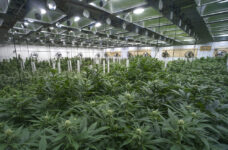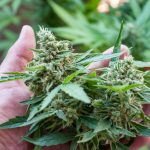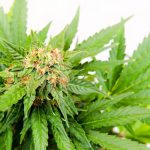The Offence of Cultivating a Prohibited Plant in New South Wales

NSW Police have seized more than 13,000 cannabis plants worth an estimated $40 million, in what they describe as one of the largest cannabis busts in Australia’s history.
Fourteen men have been charged with a range of drug and criminal group-related offences; all of them Vietnamese nationals.
Police say that of fourteen, four of the men are in Australia illegally, eight are on bridging or student visas, and two are permanent residents.
All of the men have been refused bail and are scheduled to reappear in court in January 2021.
In the meantime, the Department of Home Affairs has been alerted about the men without any visa status.
Three properties
The cannabis crops were allegedly found at three properties on the mid-north coast of New South Wales, and the men have been charged with various offences including cultivating a prohibited plant, supplying a large commercial quantity of prohibited plant and participating in a criminal group.
Hothouses were allegedly used to grow the crops, which police say allows new plants to mature in a matter of weeks, whereas those grown outdoor are seasonal, and will only mature about every twelve months.
A task force was set up in late 2019 to investigate increases in the supply of cannabis across New South Wales. Since then, six other properties have been raided, 19 people have been arrested and charged, and an estimate $60 million worth of cannabis plants have been seized.
Cannabis remains a prohibited plant in most parts of the nation
With the exception of the Australian Capital Territory (ACT), which has legalised the small possession of cannabis, the plant remains prohibited across Australia.
In the ACT, residents over age 18 may possess up to 50 grams of cannabis, grow two plants per person or four plants per household at any given time, and use cannabis in their home.
Medicinal cannabis became legal when the Federal Parliament passed the Narcotic Drugs Amendment in 2016, but it must be sourced through a GP or licensed medical practitioner.
What is ‘Drug Cultivation’ in New South Wales?
Cultivating a prohibited plant includes sowing or scattering seeds of, or planting, growing, tending, nurturing or harvesting prohibited plants such as cannabis (or marijuana), Erythroxylon (a source of cocaine) and opium poppies.
In order to be found guilty of the offence, the prosecution must prove beyond reasonable doubt that you cultivated, or knowingly took part in the cultivation of, a prohibited plant.
The applicable maximum penalty for cultivating prohibited plants depends on a several factors, including:
- The number of plants (cannabis) or weight of plants (Erythroxylon and poppies),
- Whether the cultivation took place by enhanced indoors means and, if so,
- Whether the prosecution can prove the plants were cultivated for a commercial purpose,
- Whether or not the cultivation took place in the presence of a child, and
- Whether the case is finalised in the local court (where the penalties are lower) or in a higher court such as the district court.
The specific offences relating to drug cultivation are contained in section 23A and 23 of the Drug Misuse and Trafficking Act 1985, and are:
- Cultivating a prohibited plant,
- Cultivating a prohibited plant by enhanced indoor means,
- Cultivating a prohibited plant by enhanced indoor means for a commercial purpose,
- Cultivating a prohibited plant by enhanced indoor means in the presence of children, and
- Cultivating a prohibited plant by enhanced indoor means for a commercial purpose in the presence of children.
What Does the Prosecution Need to Prove?
To be found guilty of a drug cultivation offence, the prosecution must prove each of the essential ‘elements’ (or ingredients) of the offence beyond a reasonable doubt.
Cultivating a Prohibited Plant
To establish the offence of cultivating a prohibited plant, also known as drug cultivation, the prosecution must prove beyond reasonable doubt that:
- You cultivated, or knowingly took part in the cultivation of, a plant, and
- The plant was a prohibited plant.
If the prosecution is unable to prove these ‘elements’, you are entitled to be found not guilty.
‘Cultivating’ means to sow or scatter the seeds produced by prohibited plants, or to plant, grow, tend to, nurture or harvest the plants.
The most frequently prosecuted cultivation charges relate to cannabis plants.
However, the offence also relates to:
- Erythroxylon (a source of cocaine),
- Papaver Somniferum (opium poppy),
- Papaver orientale (Oriental poppies), and
- Papaver bracteatum (Iranian or Persian poppies).
It is important to bear in mind that you may have a valid legal defence to the charge, such as duress, which if properly raised must be disproved by the prosecution beyond a reasonable doubt.
If the prosecution is unable to do this, you must be acquitted.
Being lawfully licensed or authorised to cultivate the plant is also a defence, as is acting in accordance with a direction given by the Commissioner of Police,
Cultivating a prohibited plant by enhanced indoor means
To establish the offence of cultivating a prohibited plant by enhanced indoor means, the prosecution must prove beyond reasonable doubt that:
- You cultivated, or knowingly took part in the cultivation of, a plant,
- The plant was a prohibited plant, and
- The cultivation took place by way of enhanced indoor means.
‘Enhanced indoor means’ is where the cultivation occurred within a building or structure, and involved any one or more of the following:
- The nurture of the plant in nutrient-enriched water (with or without mechanical support),
- The application of an artificial source of light or heat, and/or
- Suspending the plant’s roots and spraying them with nutrient solution.
Cultivating a prohibited plant by enhanced indoor means for a commercial purpose
To establish the offence of cultivating a prohibited plant by enhanced indoor means, the prosecution must prove beyond reasonable doubt that:
- You cultivated, or knowingly took part in the cultivation of, a plant,
- The plant was a prohibited plant,
- The cultivation took place by way of enhanced indoor means, and
- The cultivation was for a commercial purpose.
‘Commercial purpose’ means:
- With the intention of selling it or any of its products, or
- With the belief that another intended to sell it or any of its products.
Cultivating a prohibited plant by enhanced indoor means in the presence of children
To establish the offence of cultivating a prohibited plant by enhanced indoor means, the prosecution must prove beyond reasonable doubt that:
- You cultivated, or knowingly took part in the cultivation of, a plant,
- The plant was a prohibited plant,
- The cultivation took place by way of enhanced indoor means, and
- The cultivation occurred in the presence of a child or children.
Cultivating a prohibited plant by enhanced indoor means for a commercial purpose in the presence of children
To establish the offence of cultivating a prohibited plant by enhanced indoor means, the prosecution must prove beyond reasonable doubt that:
- You cultivated, or knowingly took part in the cultivation of, a plant,
- The plant was a prohibited plant,
- The cultivation took place by way of enhanced indoor means,
- The cultivation was for a commercial purpose, and
- The cultivation occurred in the presence of a child or children.
The Penalties for Cultivating a Prohibited Plant
The maximum penalties that apply to drug cultivation offences depend on a number of factors, which are:
- The number of plants (cannabis) or weight of plants (Erythroxylon and poppies),
- Whether the plants were cultivated outdoors or by ‘enhanced indoor means’,
- If cultivated by ‘enhanced indoor means’, whether the prosecution is able to prove the plants were cultivated for a ‘commercial purpose’,
- Whether the plants were cultivated in the presence of a child, and
- The court in which the case is finalised.
The tables below summarise the penalties that apply to cultivating cannabis plants:
Here are the maximum penalties:
Cultivate Cannabis Plants
| Number of Cannabis plants | Maximum Penalty | |
| Local Court | District Court | |
| 1 – 5 | 2 years imprisonment and/or $5,500 fine.
|
10 years imprisonment and/or $220,000 fine |
| 6 – 249 | 2 years imprisonment and/or $11,000 fine. | 10 years imprisonment and/or $220,000 fine |
| 250 – 999 | Not applicable | 15 years imprisonment and/or $385,000 fine |
| 1000 or more | Not applicable | 20 years imprisonment and/or $550,000 |
Cultivate Cannabis Plants by Enhanced Indoor Means
| Number of Cannabis plants | Maximum Penalty | |
| Local Court | District Court | |
| 1 – 5 | 2 years imprisonment and/or $5,500 fine.
|
10 years imprisonment and/or $220,000 fine |
| 6 – 49 | 2 years imprisonment and/or $11,000 fine. | 10 years imprisonment and/or $220,000 fine |
| 50 – 199 | Not applicable | 15 years imprisonment and/or $385,000 fine |
| 200 or more | Not applicable | 20 years imprisonment and/or $550,000 |
Cultivate Cannabis Plants by Enhanced Indoor Means for Commercial Purpose
| Number of Cannabis plants | Maximum Penalty | |
| Local Court | District Court | |
| 1 – 5 | Not applicable
|
10 years imprisonment and/or $220,000 fine |
| 6 – 49 | Not applicable | 10 years imprisonment and/or $220,000 fine |
| 50 – 199 | Not applicable | 15 years imprisonment and/or $385,000 fine |
| 200 or more | Not applicable | 20 years imprisonment and/or $550,000 |
Cultivate Cannabis Plants by Enhanced Indoor Means in the Presence of Child
| Number of Cannabis plants | Maximum Penalty | |
| Local Court | District Court | |
| 1 – 5 | 2 years imprisonment and/or $5,500 fine.
|
12 years imprisonment and/or $264,000 fine |
| 6 – 49 | 2 years imprisonment and/or $11,000 fine. | 12 years imprisonment and/or $264,000 fine |
| 50 – 199 | Not applicable | 18 years imprisonment and/or $462,000 fine |
| 200 or more | Not applicable | 24 years imprisonment and/or $660,000 |
Cultivate Cannabis Plants by Enhanced Indoor Means for Commercial Purpose in the Presence of Child
| Number of Cannabis plants | Maximum Penalty | |
| Local Court | District Court | |
| 1 – 5 | Not applicable
|
18 years imprisonment and/or $462,000 fine |
| 6 – 49 | Not applicable | 18 years imprisonment and/or $462,000 fine |
| 50 – 199 | Not applicable | 18 years imprisonment and/or $462,000 fine |
| 200 or more | Not applicable | 24 years imprisonment and/or $660,000 |
However, it is important to bear in mind that these are the maximum penalties, and the court has discretion to apply any of the following penalty-types:
- Section 10 Dismissal
- Conditional Release Order
- Fine
- Community Correction Order
- Intensive Correction Order
- A shorter prison term
Going to Court for Cultivating a Prohibited Plant?
If you have been charged with a drug offence, call Sydney Criminal Lawyers anytime on (02) 9261 8881 to book a free first conference with a criminal defence lawyer who has the specialist experience to achieve optimal results in drug cases.
Our defence team has an exceptional track record of securing outstanding outcomes in commercial drug cases, including regularly achieving bail in commercial drug cases, and building and implementing effective defence strategies which lead commercial drug charges being dismissed from court.








